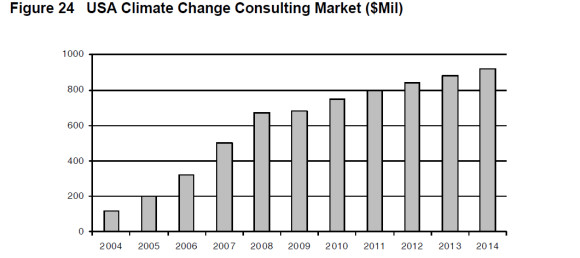
The analysis finds that, contrary to the FUND projections, global warming of 3 °C relative to 2000 would reduce US energy expenditure and, therefore, would have a positive impact on US economic growth.
Policy Implications
The economic impact of climate policies is likely to be substantial. It is the sum of the economic impact of the policies and the cost of implementing and maintaining the policies. If global warming is beneficial, as this study indicates may be the case, then the total economic impact is the sum of the forgone benefits of the avoided global warming plus the cost of policies to mitigate warming.
Our analysis suggests that the overall impact of global warming may be positive – that is, it would increase global economic growth. If this is correct, then the positive impacts can be maximised and the negative impacts minimised by increasing wealth, but not by reducing global warming. Tol concludes that the negative impacts of global warming can be reduced by reducing global warming and/or reducing poverty. However, if global warming is beneficial, then polices aimed at reducing global warming are reducing global economic growth.
According to Lomborg any reductions in temperature resulting from the Paris Agreement promises would be minimal but at high cost. For example, Lomborg says that all Paris promises 2016–2030 will reduce global temperatures by just 0.05 °C in 2100, and by 0.17 °C if they continue to 2100. He estimates the most likely cost would be $1,848 billion per year in 2030. This is about 2% of projected world GDP in 2030, and this estimate does not include all costs of the climate change industry.
Other studies also indicate that the cost of policies to reduce global warming is high. For example, Climate Change Business Journal estimates put the climate change industry in 2013 at $1,405 billion, about 1.9% of world GDP. Further, Insurance Journal says that the ‘climate change industry’ grew at 17–24% annually 2005–2008, 4–6% following the recession, and 15% in 2011. These growth rates are much higher than the growth rate of the world economy implying that, if they continue, which is likely with international protocols, accords and agreements such as Kyoto, Copenhagen and Paris, the cost of climate policies will continue to escalate.
Conclusions
The analysis finds that, contrary to the FUND projections, global warming of 3 °C relative to 2000 would reduce US energy expenditure and, therefore, would have a positive impact on US economic growth. FUND projects the economic impact to be -0.80% of GDP, whereas our analysis of the EIA data indicates the impact would be +0.07% of GDP. We infer that the impact of global warming on energy consumption may be positive for the regions that produced 82% of the world’s GDP in 2010 and, by inference, may be positive for the global economy.
The significance of these findings for climate policy is substantial. If the FUND sectoral economic impact projections, other than energy, are correct, and the projected economic impact of energy should actually be near zero or positive rather than negative, then global warming of up to around 3 °C relative to 2000, and 4 °C relative to pre-industrial times, would be economically beneficial, not detrimental.
In this case, the hypothesis that global warming would be harmful to the global economy this century may be false, and policies to reduce global warming may not be justified. Not adopting policies to reduce global warming would yield the economic benefits of warming and avoid the economic costs of those policies.

https://www.insurancejournal.com/news/national/2015/07/30/377086.htm
Interest in climate change is becoming an increasingly powerful economic driver, so much so that some see it as an industry in itself whose growth is driven in large part by policymaking.
The $1.5 trillion global “climate change industry” grew at between 17 and 24 percent annually from 2005-2008, slowing to between 4 and 6 percent following the recession with the exception of 2011’s inexplicable 15 percent growth, according to Climate Change Business Journal.

"Much of the growth is expected to come from demand for forward-looking strategic assessments of climate risks, with more corporations making risk assessments to look at the impacts of climate change over the next 10 to 15 years, according to the report."
metmike: And what is this based on? Speculative computer models of the global climate programmed to show various potential outcomes with a very wide range.........with the average, so far being too warm vs observations.
What about empirical data actually measuring our greening planet and massive food/crop production and showing the best weather/climate in the last 1,000 years for most life?
Forget it.
If it's not a huge problem............big money does not need to be spent for scientists and others to study it.
If it's not a huge problem............big money does not need to be spent to adapt.
If it's not a huge problem............big money does not flow from rich country's to poor country's with the Paris Climate Agreement(global socialism)
If its not a huge problem..........big money for green projects and green lobby money for politicians dries up.
If it's not a huge problem...........big money from carbon taxing by governments used for funding can't be justified.
If it's not a huge problem...........media sources can't generate higher ratings by sensationalizing extreme and other weather events(that have all happened before) and tying them to "manmade" climate change..........while at the same time, imposing their progressive activist political agenda on people.